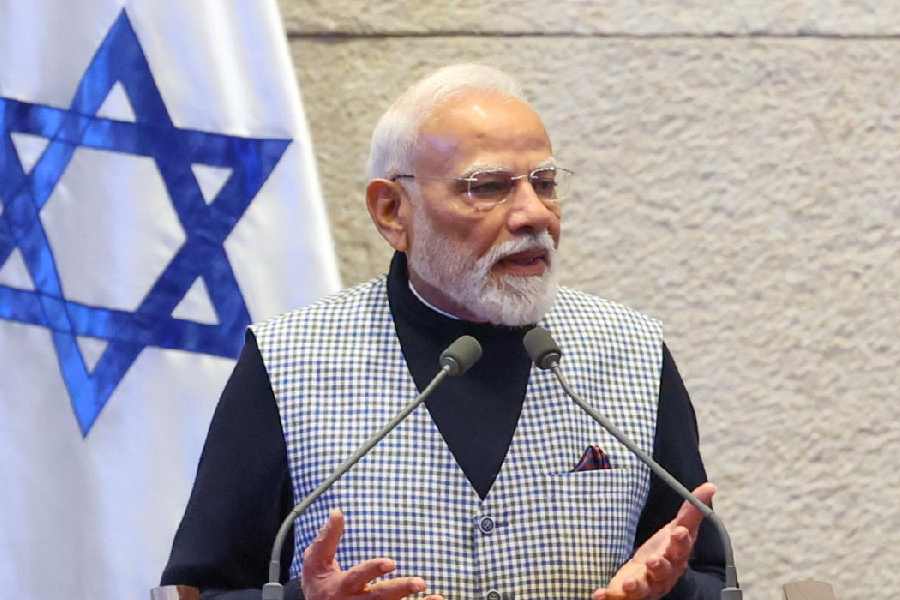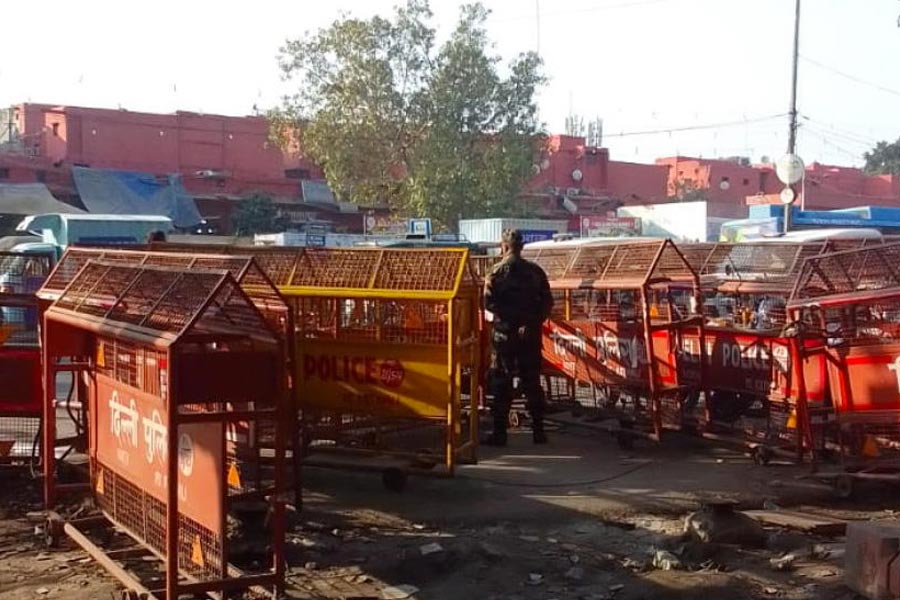Time is a luxury
Sir — A French nutritionist has claimed that eating slowly, with pleasure and all five senses, is the secret to staying slim. No calorie counting, no guilt, just smaller portions, proper meals, and regular walking. As someone who takes all the time in the world and devotes all five senses when it comes to polishing off a plate of chhole bhature, I would like to disagree. Slow eating is no match for polycystic ovaries, thyroid trouble, cortisol spikes, and the charming tradition of being force-fed by relatives. Add to that relentless heat, erratic work hours, and roads where even cows look both ways before crossing. The problem is not speed or style of eating. It is that a picturesque life where one can spend time on eating and then take a walk are a luxury in some places.
Romana Ahmed,
Calcutta
Mr Provocative
Sir — The vice-president of India, Jagdeep Dhankhar, resigned yesterday citing health concerns (“Dhankhar shock exit hours after House duty”, July 22). His decision comes amid an active parliamentary session, leading to speculation. As the Rajya Sabha chairman, he often clashed with the Opposition and spoke pointedly about judicial overreach. His resignation letter expresses gratitude to both the president and the prime minister but left unanswered questions about timing and context. For a figure as visible and combative as Dhankhar, the abruptness stands out. One hopes that the search for a successor will come with urgency and caution.
Tapomoy Ghosh,
East Burdwan
Sir — Jagdeep Dhankhar’s resignation is not merely the exit of a constitutional functionary; it is the curtain call on a style of leadership that often blurred the line between presiding and intervening. His regular confrontations with the Opposition and his vocal opinions on the judiciary stretched constitutional decorum. Whether praised for firmness or criticised for partisanship, his chair never went unnoticed. Whoever succeeds him must repair the relationship between the Rajya Sabha Chair and its members. Under Dhankhar, trust had thinned and procedure often lost out to personality.
P. Senthil Saravana Durai,
Mumbai
Sir — Jagdeep Dhankhar’s political trajectory has been unusually colourful for a vice-president. A former Janata Dal member of Parliament, a Congress member of the legislative assembly, a strategist for the Bharatiya Janata Party, a combative governor and, then, the occupant of the country’s second-highest constitutional office. He seemed to thrive on friction. In West Bengal, he locked horns with the Mamata Banerjee government at every opportunity. In the Rajya Sabha, his sharp put-downs often provoked walkouts. Combativeness became his trademark. History will judge whether that assertiveness strengthened or weakened the dignity of his office.
Manzar Imam Qasmi,
Mumbai
Sir — For a man trained in law, Jagdeep Dhankhar was surprisingly hostile to judicial independence. His repeated jabs at the collegium system and public lectures on separation of powers were neither subtle nor constructive. As the Rajya Sabha chairman, he had the opportunity to build institutional bridges. Instead, he often chose provocation. Now that he has resigned, it is time to reflect on how constitutional authorities must not misuse their visibility.
Soumendra Choudhury,
Calcutta
Justice delayed
Sir — The Bombay High Court has acquitted all 12 men convicted in the 2006 Mumbai train blasts that killed 189 people and injured over 800. A special court had handed down five death sentences and seven life terms in 2015 nearly a decade after the attacks. The high court found the evidence unreliable, especially the identification parade and witness testimonies. After 18 years in jail, 11 of the men now walk free while one died in jail. The judgment has reignited questions about investigation standards, delays in justice, and the irreversible toll of wrongful imprisonment.
Rohan Mahajan,
Udhampur, J&K
Sir — Twelve men spent nearly two decades in prison only to be told that they never should have been there in the first place. The justice system cannot return time or dignity. What it can do is hold every investigating officer, prosecutor and jail authority accountable. That has not happened. An apology is not justice, nor is compensation. Until institutional penalties exist for jailing the innocent, acquittals will remain hollow victories.
Arun Kumar Baksi,
Calcutta
Sir — What happened in the Mumbai train blasts was horrific. What happened after was disgraceful as well. A State built its case on forced confessions and questionable witnesses. Judges, bureaucrats, and police officers moved at glacial pace. Public anger was weaponised, legal safeguards sidelined, and 12 men were fed to the system. The Bombay High Court has now pulled back the curtain from these injustices. Democracy dies not only in darkness but in delay.
Kantamsetti L. Rao,
Visakhapatnam
Sir — The tragedy of the Mumbai train blasts left a nation grieving. But grief cannot be a substitute for proof. The urge to punish someone — anyone — is a dangerous impulse in criminal justice. The State gave in to that urge. It rushed to close a case it had barely begun to understand.
M.A. Madhusudan,
Bengaluru
Brittle faith
Sir — Faith must be resilient. If a painting can unseat belief, then it is the belief that requires scrutiny (“Brushed out”, July 21). The attacks on M.F. Husain’s works revealed a growing unwillingness to tolerate difference. This brittleness is dangerous. Democracy guarantees the right to speak, to create, to provoke. That is what
Husain did.
Yugal Kishore Sharma,
Faridabad











